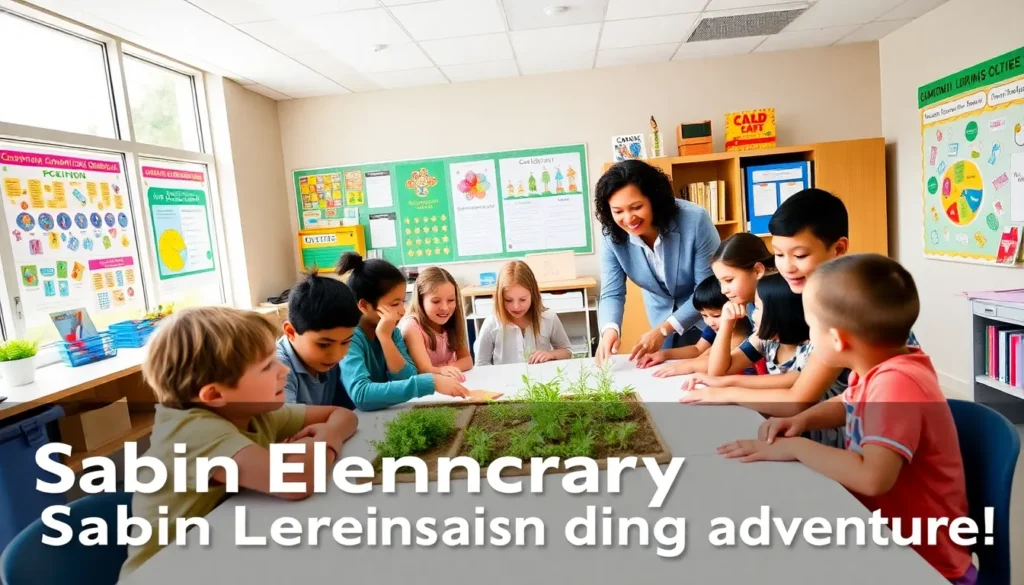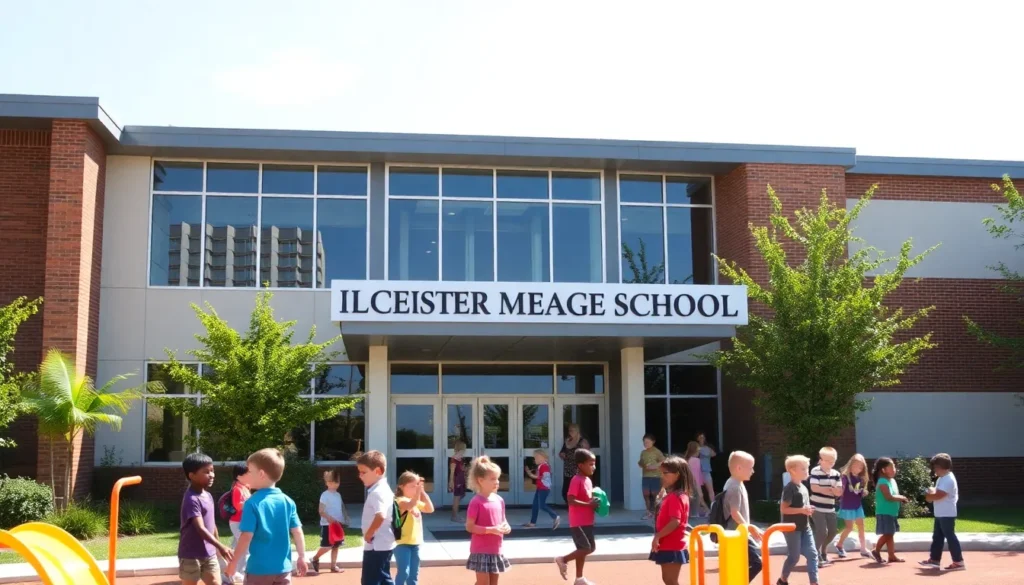Literacy development is a crucial foundation for lifelong learning and success. In a world increasingly driven by information, the ability to read and write effectively can open doors to countless opportunities. From early childhood through adulthood, the journey of literacy shapes not only individual potential but also contributes to societal progress.
Understanding the stages of literacy development helps educators and parents support learners at every age. By recognizing the importance of phonemic awareness, vocabulary growth, and comprehension skills, they can foster an environment that nurtures literacy. As technology continues to evolve, adapting literacy strategies to meet modern demands becomes essential, ensuring that everyone can thrive in an ever-changing landscape.
Table of Contents
ToggleOverview of Literacy Development
Literacy development encompasses the processes that enable individuals to read, write, and communicate effectively. This foundation is crucial for academic achievement and navigating modern society.
Definition and Importance
Literacy refers to the ability to read, write, and comprehend information. It serves as a gateway to learning, critical thinking, and personal growth. Proficient literacy skills enhance job opportunities and increase social participation. According to the National Assessment of Educational Progress, students with high literacy levels demonstrate improved problem-solving skills and greater engagement in civic activities. In essence, literacy fosters independence and informs decision-making.
Stages of Literacy Development
Literacy development occurs in identifiable stages, each with distinct characteristics:
- Emergent Literacy: Children begin recognizing letters and sounds. They engage in storytelling, often using pictures to express ideas.
- Early Literacy: Young learners start decoding words and developing basic comprehension skills. They typically recognize common sight words and understand simple texts.
- Fluent Literacy: Readers demonstrate fluidity and confidence. They comprehend complex texts, engage in discussions, and analyze content across different subjects.
- Advanced Literacy: Proficient readers engage with diverse genres and critique texts critically. They evaluate information and synthesize knowledge effectively.
Understanding these stages enables educators and parents to tailor their approaches based on individual needs, ensuring all learners progress in their literacy journey.
Factors Affecting Literacy Development

Various factors shape literacy development, guiding learners’ progress and success. Recognizing these influences helps educators and parents implement effective strategies.
Socioeconomic Influences
Socioeconomic status significantly affects literacy development. Lower-income families often face challenges, including limited access to books and educational resources. Research indicates that children from wealthier backgrounds tend to enter school with higher literacy skills due to enriched environments. Educational disparities often result in varying levels of phonemic awareness, vocabulary acquisition, and comprehension abilities among students. According to a study by the National Center for Education Statistics (NCES), students from low-income families scored lower on reading assessments compared to their higher-income peers, highlighting the need for targeted support.
Family Engagement
Family engagement plays a crucial role in fostering literacy skills. Parents who prioritize reading at home set strong foundations for literacy development. Regular reading aloud, discussing books, and engaging in literacy-related activities enhance children’s language skills. Data from the National Literacy Trust indicates that children with parents who are actively involved in their literacy education demonstrate higher reading proficiency. Furthermore, maintaining open lines of communication between families and educators allows for cohesive support, ensuring children receive consistent reinforcement of literacy skills across various environments.
Strategies to Support Literacy Development
Effective strategies play a crucial role in fostering literacy development across various stages. By implementing targeted interventions and programs, educators and parents can significantly enhance literacy skills.
Early Childhood Interventions
Early childhood interventions focus on developing foundational literacy skills before formal schooling begins. Structured programs often include phonemic awareness activities, vocabulary expansion, and narrative skills. Research indicates that children who engage in interactive reading experiences exhibit greater language development. Activities like shared reading, storytelling, and songs enhance children’s understanding of language. High-quality early childhood education programs, which incorporate play-based learning, can further support literacy by fostering a love for reading and writing. Consistent parental involvement in these activities strengthens children’s literacy skills and nurtures a supportive learning environment.
School-Based Programs
School-based programs are essential for reinforcing literacy skills in students. These programs often integrate comprehensive reading and writing curricula tailored to meet diverse learners’ needs. Teaching methods like guided reading and differentiated instruction allow educators to address individual learning styles. Evidence shows that students participating in programs emphasizing phonics instruction demonstrate improved reading proficiency. Moreover, incorporating technology, such as e-books and literacy apps, engages students and enhances their learning experiences. Collaborations among teachers, librarians, and families create a cohesive literacy culture within schools, promoting engagement and motivating students to achieve literacy milestones.
Technology and Literacy Development
Technology plays a significant role in enhancing literacy development, providing innovative tools and resources that facilitate reading and writing skills.
Digital Literacy Skills
Digital literacy skills are essential for navigating an increasingly digital world. These skills encompass not only the ability to use technology but also to critically evaluate online content. Proficiency in digital literacy enables individuals to search for, analyze, and utilize information effectively. Educational programs increasingly focus on integrating digital literacy into curricula, ensuring learners can assess credibility, discern biases, and engage with diverse digital texts. Research indicates that students equipped with digital literacy skills demonstrate improved academic performance and higher levels of critical thinking, essential in today’s information-heavy society.
Educational Apps and Resources
Educational apps and resources offer interactive experiences that support literacy development in engaging ways. Numerous apps focus on phonics, vocabulary, and reading comprehension, often leveraging gamification to motivate learners. For example, platforms like ABCmouse and Raz-Kids provide age-appropriate content tailored to users’ literacy levels. Additionally, digital libraries and e-books expand access to diverse literature, helping students discover a love for reading. Resources like reading comprehension games and vocabulary-building apps foster continuous practice, allowing learners to advance their skills at their own pace. Integrating these tools into education not only enhances engagement but also creates an environment supportive of personalized learning.
Literacy development is a vital component of personal and societal growth. As individuals navigate an increasingly complex information landscape, strong reading and writing skills become essential. By understanding the stages of literacy and adapting strategies to meet diverse needs, educators and families can create a supportive environment for learners of all ages.
Emphasizing family engagement and access to resources can bridge gaps in literacy skills, especially in underprivileged communities. The integration of technology further enriches literacy experiences, making learning interactive and engaging. Prioritizing literacy development not only enhances individual opportunities but also contributes to a more informed and active society.









